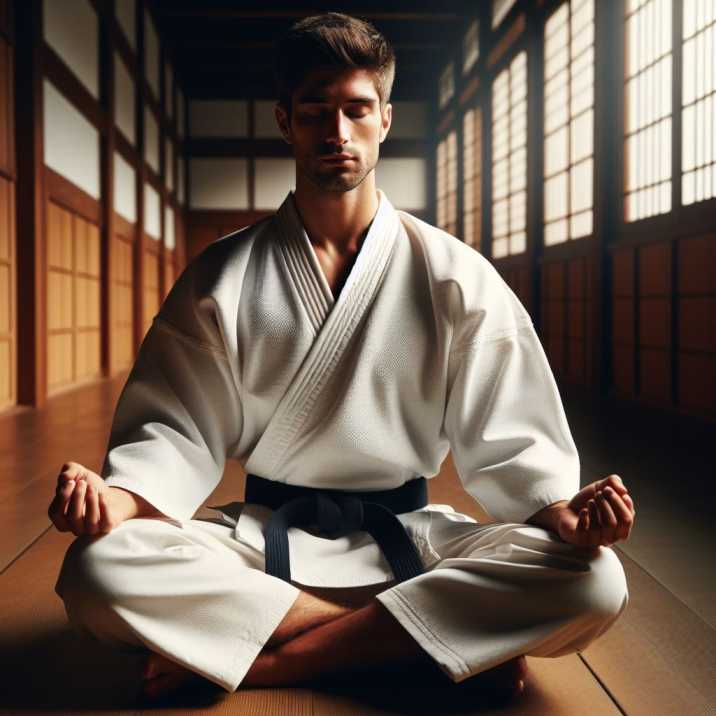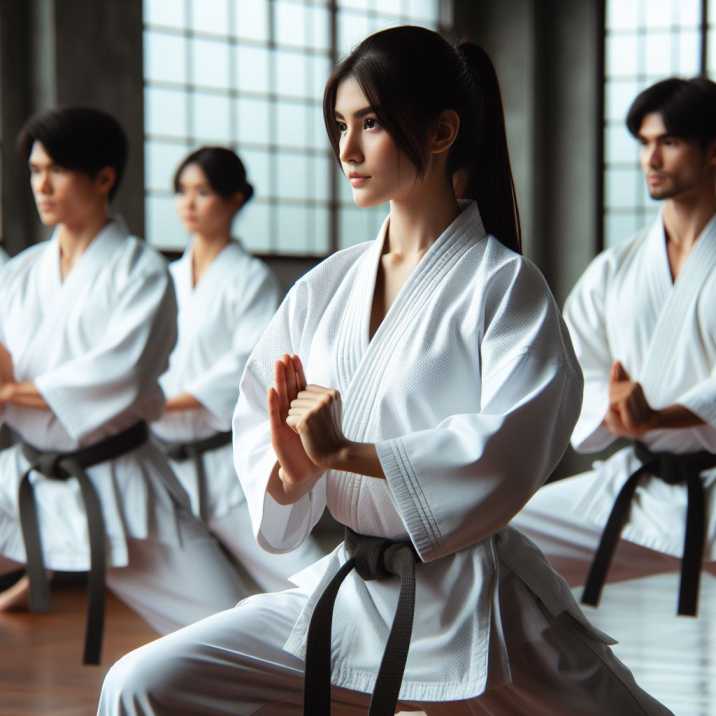Introduction:
Table of Contents
In today’s fast-paced world, distractions seem to be lurking around every corner. Whether it’s the constant buzz of notifications or the never-ending to-do lists, maintaining focus and concentration can feel like an uphill battle. However, amidst this chaos, there lies a centuries-old practice that has been revered for its ability to instill discipline, focus, and mental clarity – karate.

The Martial Art of Focus
Understanding Focus and Concentration
Before delving into how karate can enhance focus and concentration, let’s first grasp what these terms entail. Focus refers to the ability to direct one’s attention and energy towards a specific task or objective, while concentration involves sustaining that focus over a prolonged period.
The Science Behind Focus
Studies have shown that regular physical activity, such as martial arts practice, can have a profound impact on cognitive function. When we engage in activities like karate, our brains release neurotransmitters like dopamine and serotonin, which are essential for regulating mood and improving focus.
Karate: More Than Just Physical Exercise
The Mind-Body Connection
Karate is not just about mastering physical techniques; it’s also about cultivating mental discipline and awareness. Through rigorous training, practitioners learn to synchronize their mind and body, resulting in heightened focus and concentration.
Breathing Techniques
Central to karate practice are breathing techniques that promote relaxation and mental clarity. By focusing on deep, controlled breaths, practitioners can quiet the mind and sharpen their concentration skills.
Techniques for Improving Focus in Karate
Kata Practice
Kata, or predefined forms, are a fundamental aspect of karate training. By meticulously executing each movement with precision and intention, practitioners develop a heightened sense of focus and concentration.
Meditation and Mindfulness
Many karate dojos incorporate meditation and mindfulness exercises into their training routines. These practices help students quiet their minds, increase self-awareness, and enhance their ability to concentrate under pressure.
Unlocking the Power of Focus
Transferable Skills
The focus and concentration cultivated through karate practice extend far beyond the dojo. Students often find that the discipline and mental clarity they develop in karate benefit other areas of their lives, such as academics and professional endeavors.
Overcoming Challenges
In karate, practitioners are continually challenged to push past their limits and overcome obstacles. This resilience-building aspect of the practice strengthens not only the body but also the mind, fostering unwavering focus and concentration.

Table of Information:
| Technique | Description |
|---|---|
| Kata Practice | Predefined forms executed with precision and intent |
| Breathing | Controlled breathing techniques for relaxation |
| Meditation | Mental exercises to quiet the mind and increase focus |
Conclusion:
In conclusion, karate is not just a physical activity; it’s a holistic practice that nurtures the mind as well as the body. Through dedicated training, practitioners can unlock the power of focus and concentration, enabling them to navigate life’s challenges with clarity and resilience.
FAQs:
- Can anyone learn karate?
- Yes, karate is suitable for people of all ages and fitness levels.
- How often should I practice karate to see improvement in focus?
- Consistent practice is key. Aim for at least two to three sessions per week to experience noticeable benefits.
- Are there any mental health benefits to practicing karate?
- Absolutely. Karate promotes mental well-being by reducing stress, increasing self-discipline, and enhancing focus.
- Is karate safe for children?
- When taught by qualified instructors in a supervised environment, karate is a safe and beneficial activity for children.
- Can karate help with attention deficit disorders like ADHD?
- While not a replacement for medical treatment, karate can complement traditional therapies by providing structure, discipline, and physical activity.


